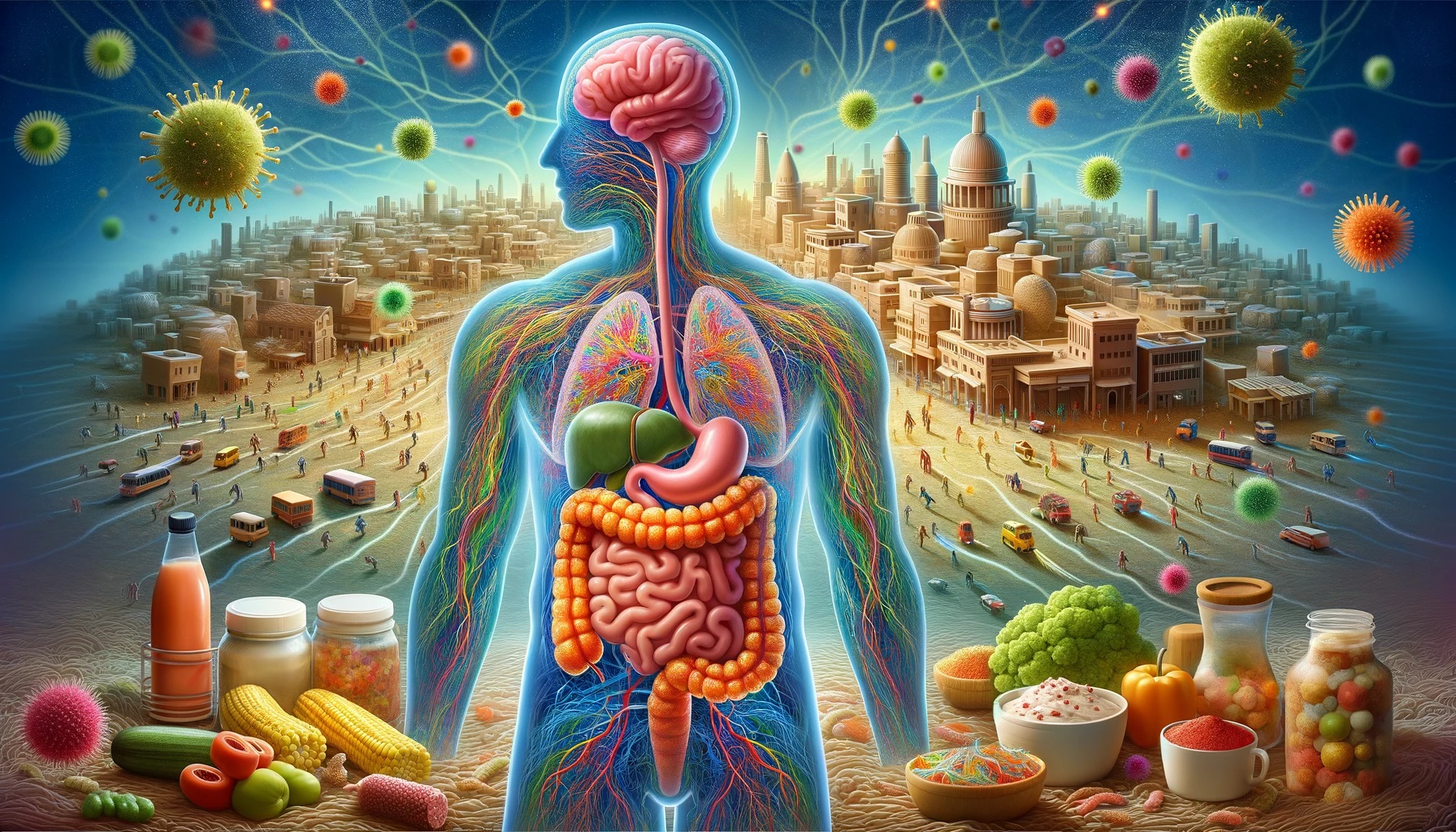· nutrition · 15 min read
Nutrition's Impact on Mental Health: An Insight
Explore the pivotal role of diet in enhancing mental well-being through omega-3 fatty acids, antioxidants, and probiotics. Understand the critical gut-brain axis and how mindful eating can lead to a happier, healthier mind.
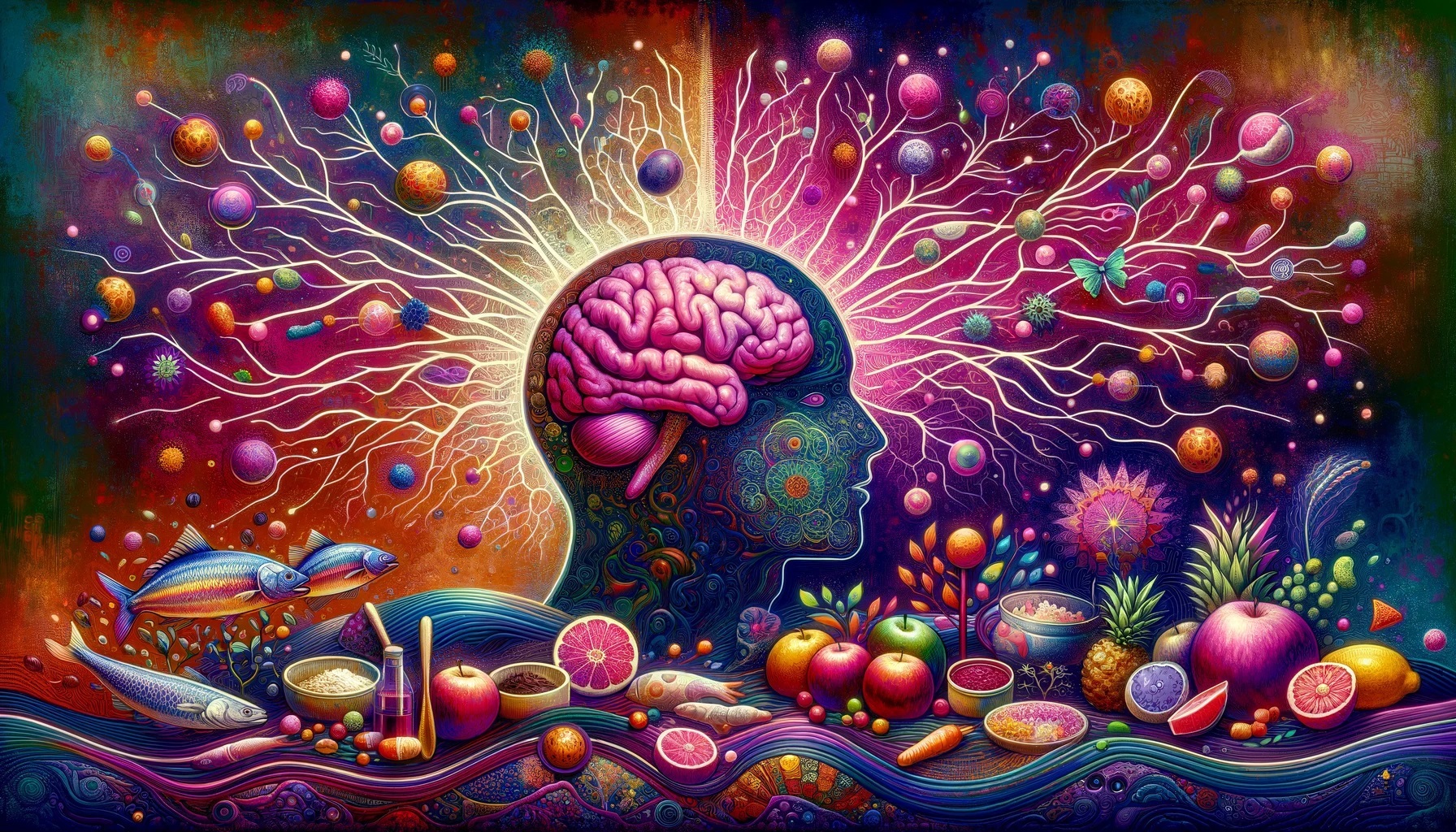
In This Post
The Fact Why Should I Care How To Put In Action Start Tomorrow Guide How does it effect my ability to focus How does it impact my daily life How does it help me make friends How does it help me manage stress How does it effect my mood Summary: Remember Refresher Checklist The Full Research Article CitationsPrint Out The Tomorrow Checklist!
Sign up for our newsletter and receive a copy today, so that, you can start tomorrow! Or the next day, or the day after that. I forget everything and starting things is hard at least for me so these checklists are godsend.
Print Out The Remember Refresher Checklist!
Sign up for our newsletter and download your own copy of the Remember Refresher Checklist, so that, you can easily put it on your fridge and help you stay on target towards your WHY. Every little bit helps.
Introduction to Diet and Mental Health
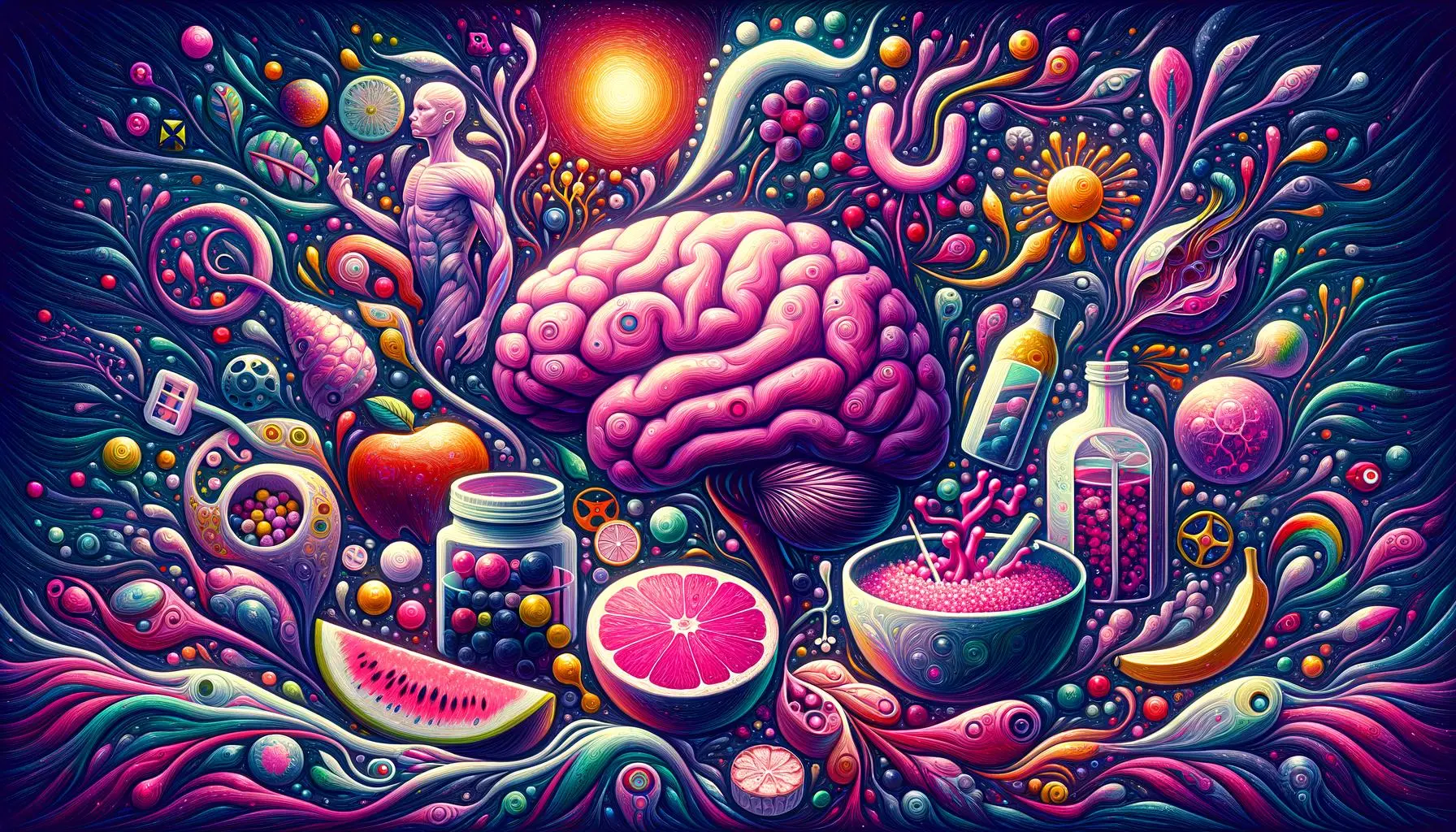 The journey toward mental well-being is multi-faceted, intertwining the strands of psychological care, physical activity, and, intriguingly, nutrition. The food we consume does much more than satiate hunger or fuel our bodies. It has the profound power to mold our mental health, shaping our emotions, cognitive functions, and overall psychological state. This introductory section delves into the intricate relationship between diet and mental well-being, laying the groundwork for understanding the pivotal role of nutrition in mental health.
The journey toward mental well-being is multi-faceted, intertwining the strands of psychological care, physical activity, and, intriguingly, nutrition. The food we consume does much more than satiate hunger or fuel our bodies. It has the profound power to mold our mental health, shaping our emotions, cognitive functions, and overall psychological state. This introductory section delves into the intricate relationship between diet and mental well-being, laying the groundwork for understanding the pivotal role of nutrition in mental health.
The Link Between Nutrition and Mental Well-being
The assertion that “you are what you eat” extends far beyond physical health, reaching the depths of mental and emotional well-being. Various studies underscore the connection between dietary patterns and the reduced risk of depression, anxiety, and other mental health disorders. Nutritional psychiatry, an emerging field, illustrates how dietary choices impact our brain structure, chemistry, and function.
Omega-3 fatty acids, antioxidants, and probiotics stand out as dietary components with significant mental health benefits. These nutrients can influence mood regulation, stress response, and even the risk of developing psychiatric disorders. The compelling evidence that diet can affect mental health includes:
- Omega-3 fatty acids, found in fish, are pivotal in neuronal signaling and reducing inflammation—factors closely associated with depression and anxiety.
- Antioxidants in fruits and vegetables combat oxidative stress, which can lead to brain health deterioration and mood disorders.
- Probiotics, present in fermented foods, boost gut health, which is intricately linked to brain health through the gut-brain axis.
- [ ] Incorporate more omega-3-rich foods into your diet (e.g., salmon, walnuts)
- [ ] Eat a rainbow of fruits and vegetables daily for a wide range of antioxidants
- [ ] Include probiotic-rich foods like yogurt and kimchi in your meals
Understanding the Gut-Brain Axis
The gut-brain axis serves as a two-way communication system between the gut and the brain, where neurons, hormones, and the immune system intertwine. This complex network involves neurotransmitters such as serotonin and GABA, which are essential for mood regulation and stress response. A healthy gut microbiota, fostered by a diet rich in probiotics, plays a crucial role in maintaining this communication line, underpinning the link between diet and mental well-being.
A balanced, nutrient-rich diet supports a healthy gut microbiota, influencing the production of neurotransmitters and reducing inflammation—both of which are critical for mental health. This understanding emphasizes the importance of considering dietary patterns in managing and preventing mental health issues, steering us toward dietary habits that nurture both the mind and body.
In essence, the exploration of nutrition’s impact on mental health unveils the profound power of dietary choices. By adopting a diet rich in omega-3 fatty acids, antioxidants, and probiotics, individuals can actively enhance their mental well-being, underscoring the critical role of the gut-brain axis in this relationship. As we delve deeper into the key components of a mental health-boosting diet in the subsequent sections, the intertwined nature of food, gut health, and mental health becomes increasingly evident, paving the way for healthier, happier minds.
Key Components of a Mental Health-Boosting Diet

The Role of Omega-3 Fatty Acids
Omega-3 fatty acids are like the superstars of healthy fats, crucial not just for our body’s physical health but especially for our mental well-being. These fats are found in foods like fish, chia seeds, and walnuts. They play a significant role in brain health, helping to build brain and nerve cells—a key component for learning and memory. More so, omega-3s are linked with a reduced risk of depression and anxiety thanks to their ability to decrease inflammation, which is often heightened in mood disorders.
To ensure you’re getting enough Omega-3 fatty acids in your diet, consider adding these foods regularly:
- Salmon
- Chia seeds
- Walnuts
- Flaxseeds
- Hemp seeds
Antioxidants: The Mental Health Protectors
Antioxidants work as our body’s defense team. They protect our cells from damage caused by free radicals, which are unstable molecules that can harm cells and are linked to multiple illnesses, including mental health disorders. Foods rich in antioxidants like berries, nuts, and spinach, promote brain health by reducing oxidative stress, a type of damage to our brain cells. Regular intake of these antioxidant-rich foods can contribute to a healthy gut microbiota, further supporting the gut-brain axis for optimal mental health nutrition.
Here’s a simple checklist to ensure you’re getting enough antioxidants:
- [ ] Eat a handful of berries (like strawberries or blueberries) each day
- [ ] Include nuts and seeds in your diet, like almonds and sunflower seeds
- [ ] Add green, leafy vegetables to meals as much as possible
- [ ] Choose whole grains over refined ones
- [ ] Sip on green tea
Probiotics: Gut Health Equals Brain Health
The term ‘gut health’ has been buzzing around, but it’s vital in ensuring our brain’s health too! Probiotics are beneficial bacteria found in fermented foods that support a healthy balance in our gut microbiome. A flourishing microbiome has been shown to improve the gut-brain communication, enhance mood regulation, lower stress response, and may even reduce symptoms of depression and anxiety.
Fermented foods like yogurt, kimchi, and kefir are packed with these good bacteria. Plus, incorporating probiotics into our diet can foster a healthy gut microbiota, reinforcing the importance of the gut-brain axis in mood regulation and stress response.
By focusing on these three key components—omega-3 fatty acids, antioxidants, and probiotics—we can significantly influence our mental well-being through diet. Just remember, it’s all about balance and incorporating these elements into your daily dietary patterns for the best results in bolstering brain health and mood regulation.
The Gut-Brain Communication Network
 The fascinating journey of understanding how our diet affects our mental health takes us deeper into the intricacies of the human body, specifically to the marvel that is the gut-brain communication network. This dynamic system illustrates not just the complexity of our physiological makeup but also underscores the criticality of dietary patterns in governing our mental well-being.
The fascinating journey of understanding how our diet affects our mental health takes us deeper into the intricacies of the human body, specifically to the marvel that is the gut-brain communication network. This dynamic system illustrates not just the complexity of our physiological makeup but also underscores the criticality of dietary patterns in governing our mental well-being.
Neuronal Pathways: The Brain’s Direct Line to the Gut
Imagine a bustling city with numerous communication lines, all intricately connected and indispensable for its smooth operation. This imagery closely represents the gut-brain axis, a sophisticated network facilitating a two-way communication street between the central nervous system (CNS) and the Enteric Nervous System (ENS) present in our gut. Through various channels, including neuronal, hormonal, and immunological paths, this network plays a pivotal role in maintaining not just gut health but our overall emotional and psychological health.
Understanding the Neuronal Signaling
Neuronal signaling, the brain’s direct line to the gut, is fascinating for several reasons. Primarily, it involves different neurotransmitters, such as serotonin and GABA, known for their roles in mood regulation and stress response. Interestingly, a significant portion of the body’s serotonin is produced in the gut—not the brain as many would think. This production is heavily influenced by the gut microbiota, which is, in turn, affected by our dietary patterns.
A healthy diet rich in omega-3 fatty acids, antioxidants, and probiotics can foster a healthy gut microbiota, leading to an optimum production of these crucial neurotransmitters. Here’s a simple checklist to ensure our gut-brain communication is at its best through our dietary patterns:
- Incorporate omega-3 rich foods like salmon and flaxseeds regularly.
- Eat a variety of antioxidant-rich foods such as berries, nuts, and leafy greens.
- Include probiotic foods like yogurt, kimchi, and kombucha in your diet.
- Ensure a high fiber intake to feed the good bacteria in your gut.
- Limit processed foods and those high in sugars that can disrupt gut microbiota balance.
By adhering to these dietary guidelines, one can significantly influence the gut-brain axis for the better, supporting not just gut health but paving the way for a reduced risk of depression and anxiety. This direct pathway is crucial for neurotransmitter balance, effective mood regulation, and a robust stress response mechanism— elements essential for a sound mental health nutrition practice.
In summary, the gut-brain communication network, particularly the neuronal pathways, serves as a testament to the intricate connection between our diet and mental health. Understanding this connection opens avenues for leveraging nutritional psychiatry to maintain a healthy mind and body. By focusing on a diet that supports a healthy gut microbiota through the intake of omega-3 fatty acids, antioxidants, and probiotics, we can enhance our mood regulation, stress response, and ultimately, our mental well-being. Practical Tips for a Healthy Mind Diet
Implementing a diet that boosts brain health doesn’t have to be complicated. A few simple changes and adding specific food items to your meals can significantly impact your mental well-being. Here’s how you can do it:
Incorporating Omega-3 Rich Foods into Your Diet
Omega-3 fatty acids are crucial for brain health, playing a key role in reducing inflammation and supporting neuronal signaling. Foods high in omega-3 include:
- Fatty fish like salmon, mackerel, and sardines
- Flaxseeds and chia seeds
- Walnuts
- Hemp seeds
Try to include these foods in your diet several times a week to support your brain health.
Boosting Your Intake of Antioxidants
Antioxidants help fight oxidative stress and protect your brain. Foods rich in antioxidants include:
- Berries like strawberries, blueberries, and blackberries
- Dark leafy greens such as spinach and kale
- Nuts and seeds
- Dark chocolate (in moderation)
Incorporating a variety of these foods into your meals can help shield your brain from damage and support overall mental health.
Finding the Right Probiotics
Probiotics are beneficial for gut health, which is directly linked to brain health through the gut-brain axis. You can find probiotics in:
- Fermented foods like yogurt, kefir, sauerkraut, and kombucha
- Probiotic supplements, if food sources are not an option
Ensuring you have enough probiotics in your diet can help maintain a healthy gut microbiome, crucial for mood regulation and mental health.
Sample Meal Plans and Recipes
Creating a meal plan that includes omega-3 fatty acids, antioxidants, and probiotics can be simple and delicious. Here’s a basic guideline to get you started:
- **Breakfast**: Yogurt with flaxseeds, walnuts, and berries
- **Lunch**: Salad with spinach, kale, avocados, and grilled salmon
- **Snack**: A handful of almonds and dark chocolate
- **Dinner**: Sautéed vegetables with quinoa and fermented sauerkraut on the side
Experimenting with various recipes that incorporate these nutrients can make your meals both nutritious and enjoyable. Focus on diversity to get a wide range of benefits and keep your diet interesting.
In summary, maintaining a diet rich in omega-3 fatty acids, antioxidants, and probiotics is essential for mental health. By making simple adjustments to your daily meals, you can significantly impact your mood regulation, stress response, and overall well-being. Remember, a healthy mind starts with what you put on your plate.
FAQs on Nutrition and Mental Health

How Does Omega-3 Affect Depression and Anxiety?
Omega-3 fatty acids play a critical role in the functioning of our brain, particularly in mood regulation and stress response. Research shows that incorporating omega-3 supplements or foods rich in these fats, like fish, nuts, and seeds, can significantly reduce the symptoms of depression and anxiety. The reason behind this is omega-3’s ability to enhance neurotransmitters like serotonin and GABA, which are directly linked to our mood states. Thus, maintaining adequate levels of omega-3 fatty acids is key to supporting mental health nutrition and potentially lowering the risk of depression and anxiety.
Can Dietary Changes Improve Gut-Brain Communication?
Absolutely! The gut-brain axis represents the bidirectional communication highway between your gut and brain, involving neuronal signaling, hormonal signaling, and immunological signaling. Nutritional psychiatry suggests that by modifying our dietary patterns, particularly increasing the intake of probiotics, antioxidants, and omega-3 fatty acids, we can improve the health of our gut microbiota. This, in turn, enhances gut-brain communication, positively impacting our mood regulation, stress response, and overall mental well-being. Healthy dietary practices contribute to a reduced risk of depression through improved microbiome diversity and strengthened gut-brain axis.
What Are Easy Ways to Get More Antioxidants in My Diet?
Incorporating more antioxidants into your diet is simpler than you might think. Antioxidants are abundant in colorful fruits and vegetables, dark chocolate, nuts, and seeds. They’re crucial in combating inflammation and oxidative stress, factors linked to mood disorders and depression. Here’s a quick list to ensure you’re packing antioxidants into your meals:
- Start your day with a berry smoothie.
- Snack on a handful of mixed nuts.
- Include a colorful salad with your lunch.
- Opt for dark chocolate as a treat.
- Incorporate green tea into your hydration routine.
By following these simple tips, you can enhance your antioxidant intake, supporting both your mental and physical health. Remember, a diet rich in various nutrients, including antioxidants, plays a fundamental role in maintaining a healthy gut microbiota, neuronal signaling, and overall brain health.
Conclusion Impact of Nutrition on Mental Health
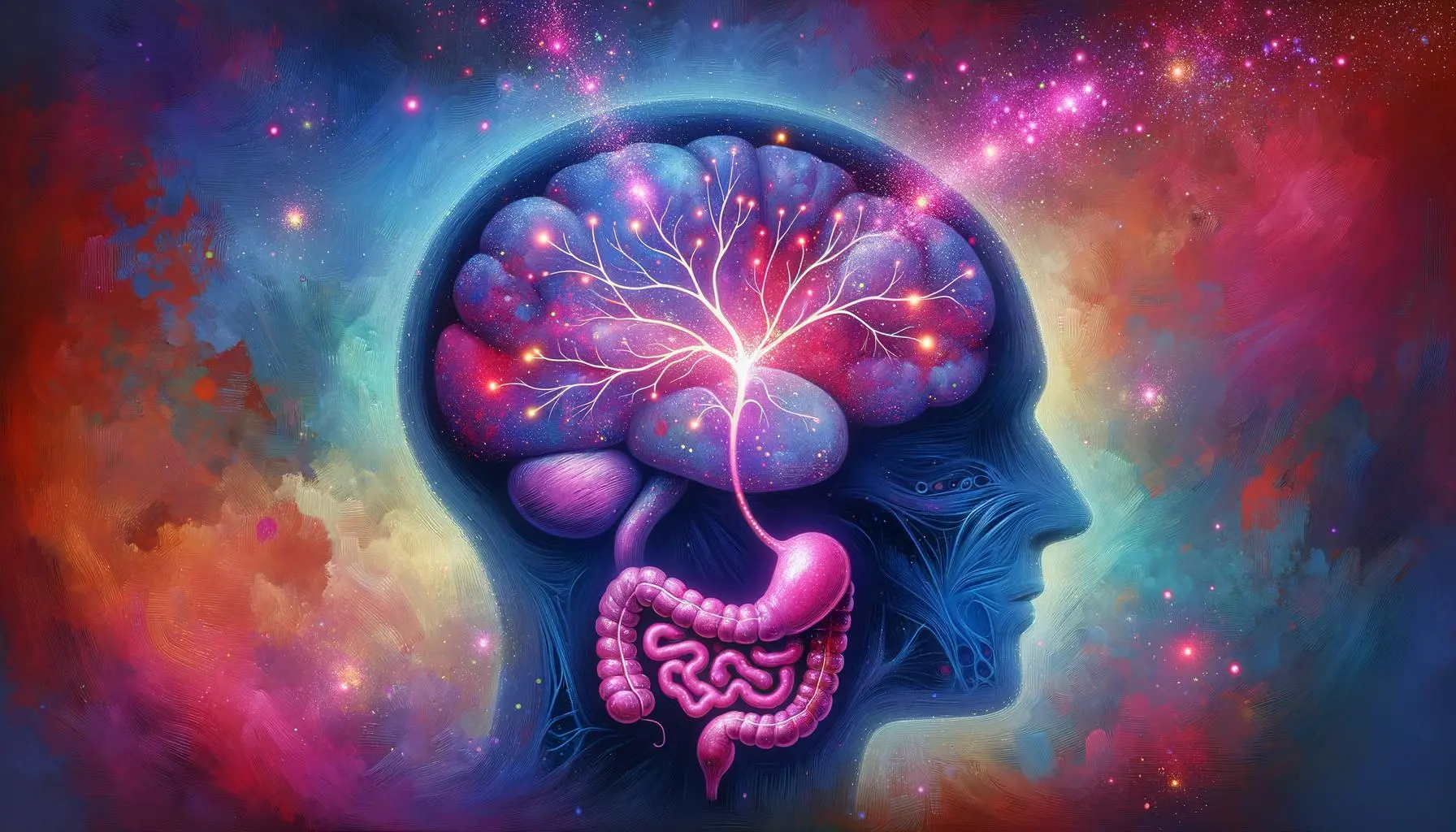 As we’ve journeyed through the intricate connection between what we eat and how we feel mentally, it’s clear that nutrition holds a powerful place in supporting our mental health. Our exploration into the realms of omega-3 fatty acids, antioxidants, and probiotics, alongside the fascinating science behind the gut-brain axis, underscores the importance of dietary patterns in mood regulation and the stress response. This conclusion aims to encapsulate the key takeaways from our discussion and ponder future directives in the realm of nutritional psychiatry.
As we’ve journeyed through the intricate connection between what we eat and how we feel mentally, it’s clear that nutrition holds a powerful place in supporting our mental health. Our exploration into the realms of omega-3 fatty acids, antioxidants, and probiotics, alongside the fascinating science behind the gut-brain axis, underscores the importance of dietary patterns in mood regulation and the stress response. This conclusion aims to encapsulate the key takeaways from our discussion and ponder future directives in the realm of nutritional psychiatry.
Key Takeaways
Dietary Patterns Matter: A diet rich in omega-3 fatty acids, antioxidants, and probiotics can contribute significantly to a reduced risk of depression and promote overall mental well-being. By embracing foods that foster a healthy gut microbiota, we encourage a positive environment for neurotransmitters like serotonin and GABA, which are pivotal to our emotional health.
The Gut-Brain Axis: Understanding this complex communication network has opened new avenues in nutritional psychiatry, showing us how gut health directly affects our mental state. Through neuronal, immunological, and hormonal signaling, our gut tells our brain much about our overall wellness and can influence our emotional stability.
Practicality in Implementation: Incorporating beneficial nutrients into our diet isn’t just about knowing what to eat; it’s about making those choices accessible and practical. Through straightforward advice and sample meal plans, we’ve seen how simple changes can lead to significant strides in improving our mental health nutrition.
Future Directions: As research evolves, so too will our understanding of the nutrient-brain interaction. The emerging field of psychobiotics and the deepening investigation into microbiome diversity promise to unveil further insights into how our diet can become a tool for anxiety relief and enhanced mood regulation.
Future Directions
The realm of nutritional psychiatry is only beginning to unfurl its potential. As we continue to dissect the intricate ways in which our dietary intake influences our mental health, there’s an evident need for more comprehensive studies and real-world applications. Personalizing nutrition based on individual gut microbiota profiles and exploring the effects of brain health supplements stand out as promising future directions.
In light of our journey through nutritional insights for mental well-being, here’s a checklist to help you incorporate these findings into your daily life:
- [ ] Incorporate omega-3 rich foods, like salmon and flaxseeds, into your diet weekly.
- [ ] Aim for a colorful plate to ensure you're getting a wide range of antioxidants.
- [ ] Include fermented foods like yogurt and kombucha to boost your probiotic intake.
- [ ] Stay hydrated and mindful of your body's signals to balance your dietary patterns.
- [ ] Consult with a healthcare professional before making significant changes or introducing supplements.
As research continues to unveil the complex relationship between what we eat and how we feel, it’s empowering to recognize that each meal offers an opportunity to nourish not just our bodies but also our minds. The journey toward understanding and leveraging the full potential of nutritional psychiatry is ongoing, and with each new discovery, we move closer to realizing the profound impact our diet can have on our mental health.
Relevant Links on Impact of Nutrition on Mental Health
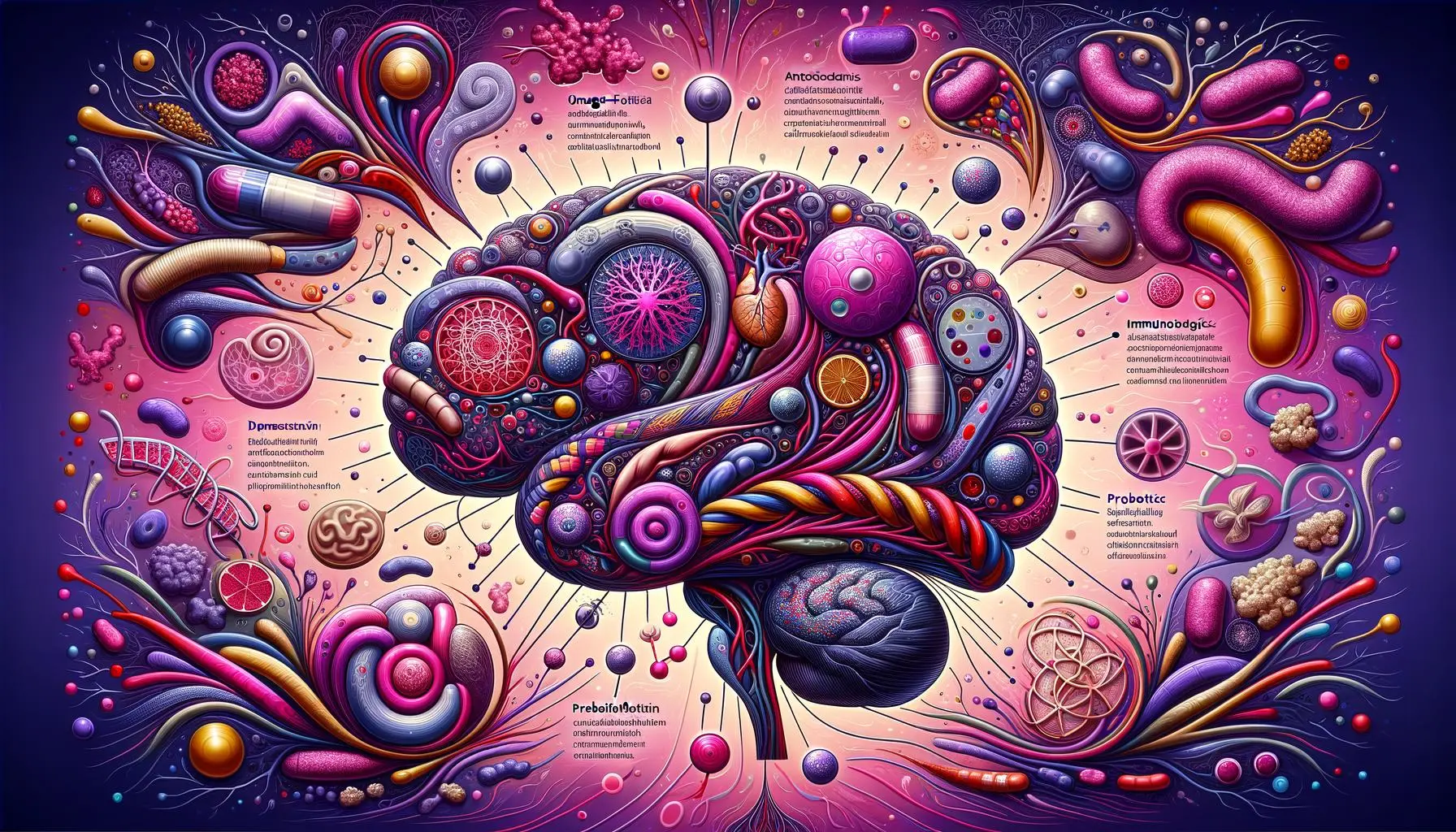 In our journey through understanding how nutrition impacts mental health, we have explored various dimensions such as the gut-brain axis, the critical roles of omega-3 fatty acids, antioxidants, and probiotics. We’ve also dived into practical tips for incorporating these essential nutrients into your diet. To further broaden your understanding and offer more resources for deep dives into specific areas, here are three highly recommended external links:
In our journey through understanding how nutrition impacts mental health, we have explored various dimensions such as the gut-brain axis, the critical roles of omega-3 fatty acids, antioxidants, and probiotics. We’ve also dived into practical tips for incorporating these essential nutrients into your diet. To further broaden your understanding and offer more resources for deep dives into specific areas, here are three highly recommended external links:
Further Reading on Mental Health - The National Institute of Mental Health offers a plethora of resources and cutting-edge research findings on mental health, offering you a gateway to explore the latest understanding in the field.
Deep Dive into Omega-3 Benefits - Harvard Health Publishing provides an in-depth look at the numerous health benefits of Omega-3 fatty acids, not just for mental well-being but for overall health.
Exploring Probiotics and Mood - Psychology Today features insightful articles on how probiotics influence mood regulation, providing an intriguing perspective on gut health and mental health.
These resources are instrumental in expanding your knowledge on how nutrition affects our mental health and overall well-being. They offer evidence-based information and practical advice to help you or your loved ones navigate the complex landscape of nutrition and mental health.
To keep track of these resources and ensure you make the most out of them, here’s a quick checklist:
- [ ] Visit the National Institute of Mental Health website for the latest research on mental health.
- [ ] Read up on omega-3 benefits from Harvard Health Publishing to integrate these nutrients better into your diet.
- [ ] Explore articles on probiotics and mood on Psychology Today for insights into the gut-brain connection.
By following these steps and leveraging the valuable knowledge provided by these resources, you can make informed decisions about your diet and its impact on your mental health. Remember, the journey to a healthier mind and body is continuous, and staying updated with reliable sources can significantly contribute to your overall well-being.




